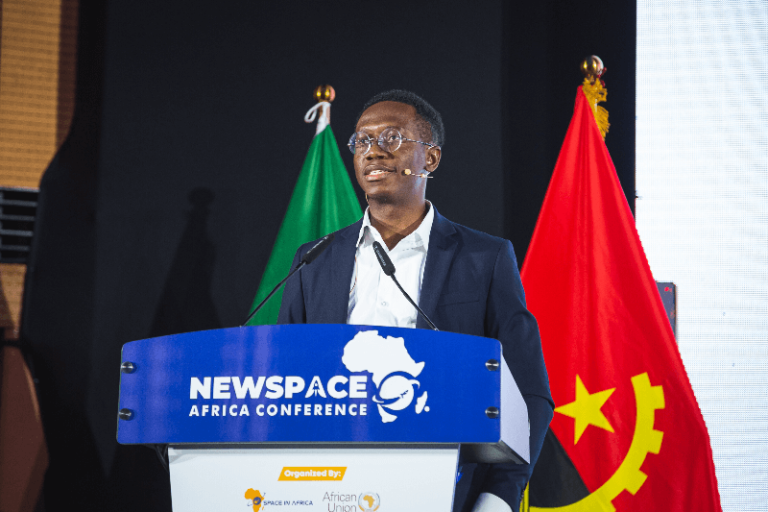

image 800x533 (27)
According to Space in Africa, the African Union Commission (AUC) will officially launch the African Space Agency (AfSA) at the 2025 NewSpace Africa Conference. Egypt Space City in Cairo, will host the conference. After its launch, AfSA will serve as the primary organisation for fostering cooperation. The agency will be in charge of carrying out the African Space Policy and Strategy and accomplishing the space-related objectives of the continent.
Following its establishment, AfSA will serve as the main contact point for Africa’s collaboration with Europe and other global partners. One of its primary aims, as specified in the African Space Agency Act, is to improve space missions throughout Africa, ensuring optimal availability of space-derived data, information, services, and products. Once fully combined into national, regional, and continental initiatives, AfSA will play a vital role in eliminating duplication and inefficiencies within the African space system. As the official entity overseeing and coordinating these works, it will also be tasked with effectively implementing the African Space Policy and Strategy and attaining the continent’s space-related objectives.
The foundation for Africa’s continental space agenda was laid in January 2016 during the Twenty-sixth Ordinary Session of the African Union (AU) Assembly, where African Heads of State and Government adopted the African Space Policy and Strategy. This milestone established the framework for utilising space technology to achieve the AU’s vision of an integrated, prosperous, peaceful Africa. The African Space Agency Act was approved in 2017, setting the legal and regulatory framework for overseeing space activities across the continent and providing the basis for the creation of AfSA.
The establishment of AfSA was the result of vast planning, discussions, and financial considerations over several years. In 2018, the Committee of Permanent Representatives of the AU met to evaluate the structural and financial significance of establishing the agency. These deliberations aimed to guarantee the long-term sustainability of AfSA and its ability to achieve its objectives. Stakeholders deliberated on critical issues such as governance frameworks, funding strategies, and technical capabilities required to support Africa’s space aspirations. The African Union Commission (AUC), dedicated to promoting space technologies for the benefit of African populations, subsequently approved a tailored roadmap to steer the agency’s development. This roadmap, specifically designed to address Africa’s needs and challenges, delineates strategic goals and key performance indicators to ensure AfSA’s impact on the socio-economic progress of the continent.
Egypt’s Space City has become the official location of the African Space Agency’s main offices, consolidating Egypt’s leading position in Africa’s space sector. An agreement was reached between the Egyptian government and the African Union Commission to formally establish AfSA. In June 2023, the Egyptian Parliament reaffirmed the country’s dedication by endorsing the presidential decision, officially authorizing Egypt to house AfSA’s headquarters. The Egypt Space City, an advanced 123-acre facility, is designed to bolster Africa’s space exploration initiatives and will act as a center for space-related research, creativity, and capacity development. This initiative is anticipated to enhance Egypt’s space industry and promote small and medium enterprises (SMEs) involved in space technology, contributing to economic expansion and endorsing sustainable development in line with Africa’s Agenda 2063.
The African Space Council was established at the 37th Ordinary Session of the AU Assembly. It consists of ten members, with two individuals representing each of Africa’s five regions, offering guidance and supervision for AfSA’s activities. H.E. Dr Tidiane Ouattara from Côte d’Ivoire serves as the first President, and Dr Rakiya Babamaaji from Nigeria is the Vice President. The council also includes delegates from Malawi, Namibia, Morocco, Djibouti, Rwanda, and Algeria. An additional female representative is set to join from Central Africa to ensure gender and regional equality.
AfSA’s establishment is a crucial moment for the advancement of space-based technologies in addressing Africa’s challenges. The utilization of satellite data is essential for supporting climate resilience, food security, natural resource management and disaster response. Reliable access to satellite data can assist African governments in making well-informed policy decisions to address climate change-induced challenges. AfSA is committed to advancing satellite communications and earth observation technologies to narrow Africa’s digital gap, enhance connectivity, and improve access to education and healthcare. The agency also aims to encourage the education of space science and technology to prepare the next generation of African space scientists, engineers, and entrepreneurs. Collaboration among African governments, the private sector, international partners, and the scientific community is vital for the success of AfSA, contributing to sustainable development and enhancing Africa’s global position in the space industry.
Africa is taking big steps by entering the global green technology manufacturing market to stop being just a supplier of…
Two mobile telecom leaders, MTN Group and Airtel Africa, joined forces to create a new digital infrastructure system throughout African…
South African President Cyril Ramaphosa defended his nation against claims of white discrimination made by tech magnate Elon Musk. After…
Hilton launched Signia by Hilton for its first appearance in Egypt and Africa through its hotel expansions. These hotels at…
UNICEF reported that, nearly 2900 people died of cholera across Eastern and Southern African countries while children suffer most greatly…
Enza, based in the United Arab Emirates, obtained $6.75 million in initial investment funding from Algebra Ventures and Quona Capital.…
This website uses cookies.